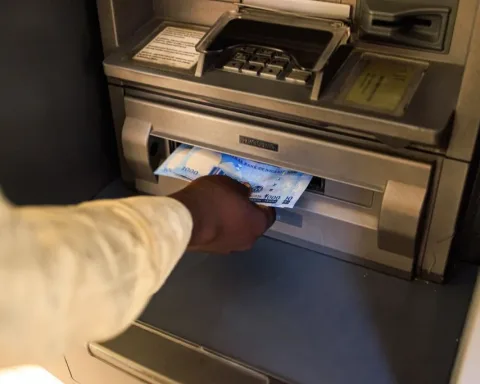The Nigerian Naira ended the week on a negative note as it depreciated to N1,542 per dollar at the official foreign exchange market on Friday.
According to data released by the Central Bank of Nigeria (CBN), the Nigerian Foreign Exchange Market (NFEM) exchange rate increased to N1542 per dollar from N1,540 per dollar on Thursday, indicating a N2 depreciation of the naira.
Join our WhatsApp ChannelAlso, data from FMDQ Securities and Exchange platform revealed that the naira depreciated. The data showed that the exchange rate rose to N1,541.68 per dollar on Friday, from N1,541.38 per dollar on Thursday, indicating 30 kobo depreciation for the naira.
According to the CBN data, authorised currency dealers quoted the dollar at the highest rate of N1,570, while the lowest rate was N1,532 per dollar on Friday.
At the parallel market, also known as black market, the naira remained at N1,660 per dollar, the same exchange rate as on Thursday and Wednesday. Also, the market maintained a steady lowest rate of N1,531 per dollar at NFEM.
Prime Business Africa observed that the margin between the parallel market and NFEM rate has further widened, reaching N118.32 per dollar on Friday.
However, analysts believe that the naira has maintained relative stability within the week. This, they attributed to some factors including proceeds from a recent Eurobond issuance, inflows from the Nigerian diaspora returning home for Christmas, and enhanced market transparency introduced by the CBN. The local currency has remained at N1,660 per dollar in the black market since Wednesday.
A week-on-week analysis of the closing rate at NFEM shows that the Friday’s closing rate was the same rate as that of the previous week (December 13).
READ ALSO: CBN Imposes N150m Fine On Banks Over Naira Hawking, Warns Of Tougher Sanctions
The CBN’s adoption of the Electronic Foreign Exchange Matching System (EFEMS), which has increased FX trading efficiency and transparency, is said to have contributed significantly to the naira’s stability.
Muda Yusuf, the CEO of the Centre for the Promotion of Private Enterprise (CPPE), recently highlighted how the EFEMS platform promotes transparency.
He clarified that demand has become more realistic and information asymmetry has decreased as a result of improved supply and demand information.
Yusuf also underlined the importance of CBN initiatives and increased foreign reserves, which have supported investor confidence and curbed fear.
Victor Ezeja is a passionate journalist with six years of experience writing on economy, politics and energy. He holds a Masters degree in Mass Communication.

















